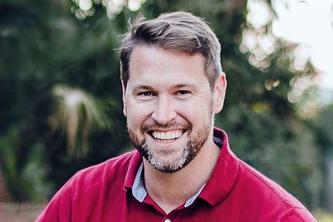
Alexa Carrera is determined to move the needle on energy justice. So far, renewable energy technologies have benefited high-income folks the most, like pricey electric vehicles and rooftop solar panels for homeowners. Low-income households still pay a larger share of their income for energy. Carrera wants to help write energy policies that ensure everyone benefits.
"There's a huge lack of diversity when it comes to who is in positions of power, and what goes into laws,” she says. “I and other people of color have different perspectives. I hope to be an advocate for energy justice."
As a child, Carrera moved between the United States and Guatemala several times. She discovered twin passions for biology and advocacy while attending Augsburg University in Minneapolis, and pushed the school to switch to solar panels for its electricity.
"I got really interested in science and policy,” she says about her undergrad years. “I learned that you can't make much difference with technology unless you affect policy."
Carrera looked for a graduate program that would foster her passions and found it close by at the Humphrey School of Public Affairs. She was granted early admission to the Master of Science in Science, Technology, and Environmental Policy (MS–STEP) program. She also received a DOVE scholarship, which covers her tuition and gives her a stipend while in school.
"I really want to make a difference in this world, and this program is helping me discover how to do that. This is what I'm supposed to be doing right now." —Alexa Carrera
In her first year at the Humphrey School, Carrera is gaining the skills she will need to influence energy policy. Although she describes herself as shy, she’s learning to debate issues. She is writing policy memos—persuasive documents that brief decision-makers on issues such as whether to allow a power company to raise its rates.
Carrera has a second-year "buddy" who helps her with nuts-and-bolts questions about classes and campus. Her alumni mentor Aaron Hanson (MS–STEP ’17), at the U of M's Institute on the Environment, contacts her regularly with opportunities for learning and networking on and off campus.
Carrera is excited about taking classes such as Tribal Energy Transitions, which will include field visits to Tribal nations in Minnesota to study how they use energy. She's especially looking forward to doing research in energy policy, possibly with her advisor, Associate Professor Gabriel Chan.
"Gabe is one of the few people in the country who does research on rural energy co-ops. I really admire and would like to work with him," she says.
Carrera got an internship at Grid Catalyst, a local technology incubator. There, she is helping to organize funding competitions for energy startups. She's also networking with people in the energy policy world.
"I really want to make a difference in this world, and this program is helping me discover how to do that," she says. "This is what I'm supposed to be doing right now."




